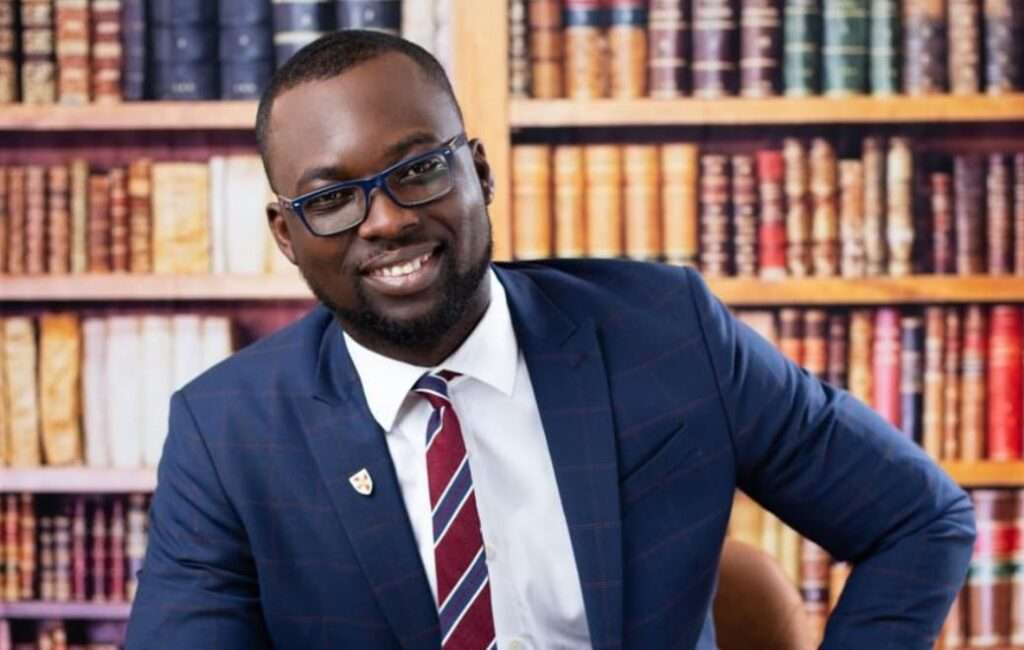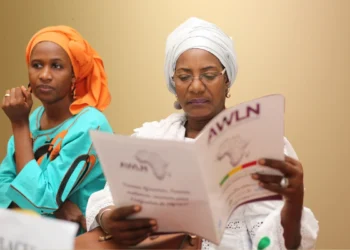The Supreme Court of Ghana’s recent judgment, delivered on Wednesday, October 30, has set off intense debate among legal experts, fueling concerns about the judiciary’s impact on the balance of power in Ghana’s democracy.
The ruling dismissed an application by Speaker of Parliament Alban Bagbin seeking to overturn an earlier Supreme Court judgment on October 18. This October 18 decision restricted the Speaker from declaring four parliamentary seats vacant, a matter critical to both the opposition and ruling party’s composition in Parliament.
The court’s latest ruling, however, is generating mixed responses. Legal experts Martin Luther Kpebu and Bobby Banson are among those weighing in, with differing interpretations of the decision’s implications.
Martin Luther Kpebu, a well-known private legal practitioner in Ghana, has voiced pointed criticism of the Supreme Court’s judgment. His remarks in a recent interview reflect deep concerns over what he describes as a growing crisis between the legislative and judicial arms of government.
“We are in a crisis because there is a kind of disagreement between two arms of government.
“The Speaker, the head of the legislature, doesn’t agree with the Supreme Court’s decision.”
Martin Luther Kpebu, Private Legal Practitioner

For Kpebu, the ruling not only challenges the authority of the Speaker but also sets a tone for further judicial encroachment on legislative matters, a trend he believes could undermine democratic stability.
Kpebu pointed out that Speaker Bagbin’s indefinite adjournment of Parliament signals a prolonged conflict with the court’s ruling.
According to Kpebu, Bagbin’s indefinite adjournment of Parliament indicates he is unlikely to yield quietly, implying ongoing friction with potential legislative standoffs.
Furthermore, Kpebu expressed disappointment with Attorney General Godfred Dame’s legal argument regarding the Speaker’s status in court.
“The Attorney General’s submission that the speaker of parliament should not be heard, and that the attorney general should be made to speak for parliament … is very laughable,” Kpebu contended.
This argument, Kpebu suggested, reflects the broader political implications underlying the case, particularly with the government’s New Patriotic Party (NPP) holding a minority in Parliament, as the vacant seats exacerbated the governing party’s difficulty in passing legislation.
Lawyer Martin Kpebu’s critique indicates that he views the Supreme Court’s ruling as part of a broader political struggle rather than a strictly legal matter.
He hinted that the implications of this ruling could extend far beyond the current case, potentially leading to further confrontations between the judicial and legislative branches.
Support for the Supreme Court’s Ruling

In contrast to Kpebu’s critical stance, constitutional lawyer Bobby Banson expressed his support for the Supreme Court’s judgment, calling it a “solid decision.”
Banson praised the court’s attention to detail, asserting that the ruling set a significant precedent for the separation of powers and underscored the importance of checks and balances within Ghana’s democracy.
“The ruling is very solid on the basis that it covered every single issue raised in the contentions summarized in the application.
“The Supreme Court was of the view that before you can deny people that representation, you must first conclude that a Member of Parliament who has been elected by the people has breached constitutional provisions.”
Bobby Banson, constitutional lawyer
He lauded the court’s decision for meticulously addressing the arguments from both the applicant and the defendant, arguing that the judgment ultimately upholds Ghana’s democratic framework by enforcing a thorough legal process.
Banson’s support for the ruling emphasizes the importance of a well-defined judicial role in Ghana’s democracy. He argued that the ruling sets a significant precedent, affirming the judiciary’s place as the ultimate interpreter of the constitution.
This, according to Banson, serves as a protective measure against hasty decisions that could destabilize parliamentary representation without concrete legal basis.
The Supreme Court’s judgment and the ensuing commentary from Kpebu and Banson highlight broader implications for Ghana’s judiciary and its interactions with the legislative branch.
The ruling is not merely a legal decision; it reflects a deeper tension in Ghana’s governance structure, particularly in the interpretation and application of constitutional mandates.
The divergent perspectives from legal experts underscore the complex issues at play, with the former warning of a democratic crisis and the latter supporting the judiciary’s role in upholding constitutional checks and balances.
The ruling underscores the judiciary’s commitment to uphold constitutional boundaries, yet it also exposes the tensions that arise when branches of government clash over their roles and powers.
For Ghana, resolving these challenges will be crucial to maintaining a stable, democratic society—one that respects the balance between judicial independence and legislative authority.
READ ALSO: UN Assembly Renews Calls to End Cuba Embargo




















